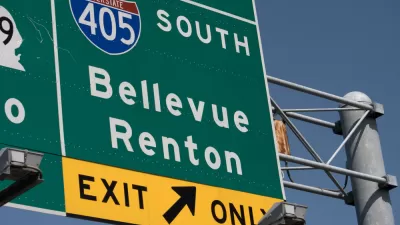Big-name technology companies with retail stores, like Apple, Microsoft, and Tesla, have enabled many Class A malls to not just stay in business, but thrive. Record sales per square foot are flowing.
Forecasts of the death of the enclosed mall are clearly premature. Of course, many will die, but the dire forecast is clearly inappropriate for many of the so-called Class A malls located in affluent, denser locations in major metro markets.
Readers are encouraged to watch the four-minute, Wall Street Journal Moneybeat video, "Can the Apple Store Save Your Local Shopping Mall?" Wall Street Journal reporter Robbie Whelan, who wrote the story from Bellevue, Washington, home of "Bellevue Square, a shopping center in this affluent Seattle suburb," is interviewed and responds to excellent questions by The Journal's MoneyBeat interviewer about how new technology companies "are now the saviour of the mall," as implausible as that may sound.
"A lot of people talk about how malls are under threat from e-commerce and how buying things online has supplanted buying things at the mall. The irony of ironies is that we have three of the biggest, most profitable (mall) tenants are from the tech world," responds Whelan to the first question.
The Bellevue Square's Tesla Motors Inc. store "produced sales of $5,500 per square foot last January, more than five times the mall’s average and at a pace the mall’s owners say is likely a U.S. record for any retailer," writes Whelan in his article.
However, as shown in a graphic of the mall, the Tesla store is a mere 1,800 square feet. The Apple and Microsoft stores are considerably larger, though under 13,000 square feet, and the Leica (camera) store is smaller than Tesla.
"High-tech tenants are a recent phenomenon," writes Whelan. "Over the past decade, the number of Apple stores in North American malls has grown to 219 from just a handful. Microsoft has opened 70 store locations in malls since 2009 and Tesla 25 since 2008, according to REIT research firm Green Street Advisors."
In addition to high sales per square foot than traditional mall anchors, the high tech stores differ from them in another way that makes them prime mall tenants. Unlike traditional anchor tenants, which "typically own their spaces outright," these stores "under typical lease agreements are required to share a percentage of their sales with their landlord," writes Whelan.
"The average vacancy rate for Class A malls — which command top rents — has fallen below where it was in early 2008 at the recession's start, says Ryan Severino, senior economist at real estate research firm Reis (REIS)," according to Investor's Business Daily on July 25, 2013. "The rate for Class B and C malls, which serve the middle- to lower-income crowd, remains 40% above its own early-recession level, he says."
FULL STORY: High-end malls get boost from high-tech stores

Planetizen Federal Action Tracker
A weekly monitor of how Trump’s orders and actions are impacting planners and planning in America.

Congressman Proposes Bill to Rename DC Metro “Trump Train”
The Make Autorail Great Again Act would withhold federal funding to the system until the Washington Metropolitan Area Transit Authority (WMATA), rebrands as the Washington Metropolitan Authority for Greater Access (WMAGA).

The Simple Legislative Tool Transforming Vacant Downtowns
In California, Michigan and Georgia, an easy win is bringing dollars — and delight — back to city centers.

The States Losing Rural Delivery Rooms at an Alarming Pace
In some states, as few as 9% of rural hospitals still deliver babies. As a result, rising pre-term births, no adequate pre-term care and harrowing close calls are a growing reality.

The Small South Asian Republic Going all in on EVs
Thanks to one simple policy change less than five years ago, 65% of new cars in this Himalayan country are now electric.

DC Backpedals on Bike Lane Protection, Swaps Barriers for Paint
Citing aesthetic concerns, the city is removing the concrete barriers and flexposts that once separated Arizona Avenue cyclists from motor vehicles.
Urban Design for Planners 1: Software Tools
This six-course series explores essential urban design concepts using open source software and equips planners with the tools they need to participate fully in the urban design process.
Planning for Universal Design
Learn the tools for implementing Universal Design in planning regulations.
Smith Gee Studio
City of Charlotte
City of Camden Redevelopment Agency
City of Astoria
Transportation Research & Education Center (TREC) at Portland State University
US High Speed Rail Association
City of Camden Redevelopment Agency
Municipality of Princeton (NJ)




























